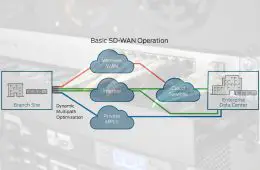The oil trading industry has experienced significant changes and developments over the past decade, driven by a range of factors such as technological advancements, shifting energy landscapes, and geopolitical tensions. These changes have brought about a new set of opportunities and challenges for traders in the oil industry. It is, therefore, crucial to examine the current state of the industry and understand the trends that are shaping its future. For more information click at this link
One of the significant changes that have affected the oil trading industry is the shift in the global energy landscape. Renewable energy sources such as solar, wind, and hydroelectric power have become more prevalent, and their adoption has accelerated in recent years. This trend is driven by a combination of factors, including the need to reduce greenhouse gas emissions and mitigate the effects of climate change, technological advancements that have made renewable energy more cost-effective, and government policies and incentives that promote the adoption of renewable energy.
As renewable energy sources continue to gain momentum, the demand for oil is expected to decrease over time. This presents a significant challenge for traders in the oil industry, as they need to find new markets and adapt their strategies to stay competitive. Some oil trading companies have already started diversifying their portfolios by investing in renewable energy projects and exploring new markets such as natural gas, which is seen as a bridge fuel that can help transition to a low-carbon economy.
Another trend that is shaping the future of oil trading is the rapid advancement of technology. Trading algorithms, big data analytics, and artificial intelligence are increasingly being used to optimize trading strategies and improve decision-making processes.
These technologies enable traders to analyze large amounts of data in real time, identify market trends and patterns, and make more informed trading decisions. This has made trading more efficient, faster, and more accurate, allowing traders to respond quickly to market changes and capitalize on opportunities.
Trends in Oil Trading

One of the most significant trends in the oil trading industry is the growing use of digital technology. Digital platforms and data analytics are transforming the way oil is traded, providing traders with new insights and tools to manage risk, optimize operations, and increase efficiency.
For example, blockchain technology is being used to create secure and transparent supply chain networks, while machine learning algorithms are being used to analyze vast amounts of data to identify patterns and make predictions. Oil Era which is an Oil trading platform is an example of how digital platforms are changing the oil trading landscape.
Another trend in the oil trading industry is the increasing demand for sustainable and renewable energy sources. As concerns about climate change continue to grow, many companies are looking for ways to reduce their carbon footprint and transition to clean energy. This shift is driving demand for renewable energy sources such as solar, wind, and biofuels, and is likely to have a significant impact on the oil industry in the years to come.
Challenges in Oil Trading
Despite the opportunities presented by new technologies and sustainable energy sources, there are several significant challenges facing the oil trading industry. One of the most pressing challenges is the ongoing volatility of oil prices. The global oil market is subject to a range of geopolitical and economic factors that can impact prices, including conflicts, sanctions, and fluctuations in supply and demand.
Another challenge facing the oil trading industry is the increasing regulatory environment. Governments around the world are implementing new regulations to reduce emissions, promote clean energy, and ensure transparency in the oil supply chain. These regulations can create additional costs and administrative burdens for oil traders, making it more challenging to operate efficiently and profitably.
Opportunities in Oil Trading
Despite these challenges, there are still significant opportunities for oil traders in the years to come. One of the most significant opportunities is the growing demand for energy in developing countries. As economies continue to grow, demand for energy is expected to increase, creating new opportunities for oil traders to expand their operations and reach new markets.
Another opportunity for oil traders is the increasing demand for energy storage solutions. As renewable energy sources become more prevalent, there is a growing need for reliable and efficient energy storage solutions to ensure a stable supply of electricity. This demand is likely to create new opportunities for oil traders to develop innovative storage solutions and technologies.
Conclusion
The future of oil trading is both exciting and challenging, with new trends, challenges, and opportunities emerging every day. To succeed in this rapidly evolving industry, traders must stay abreast of the latest developments, adopt new technologies, and embrace sustainable energy sources. By doing so, they can navigate the challenges and capitalize on the opportunities presented by the future of oil trading.


